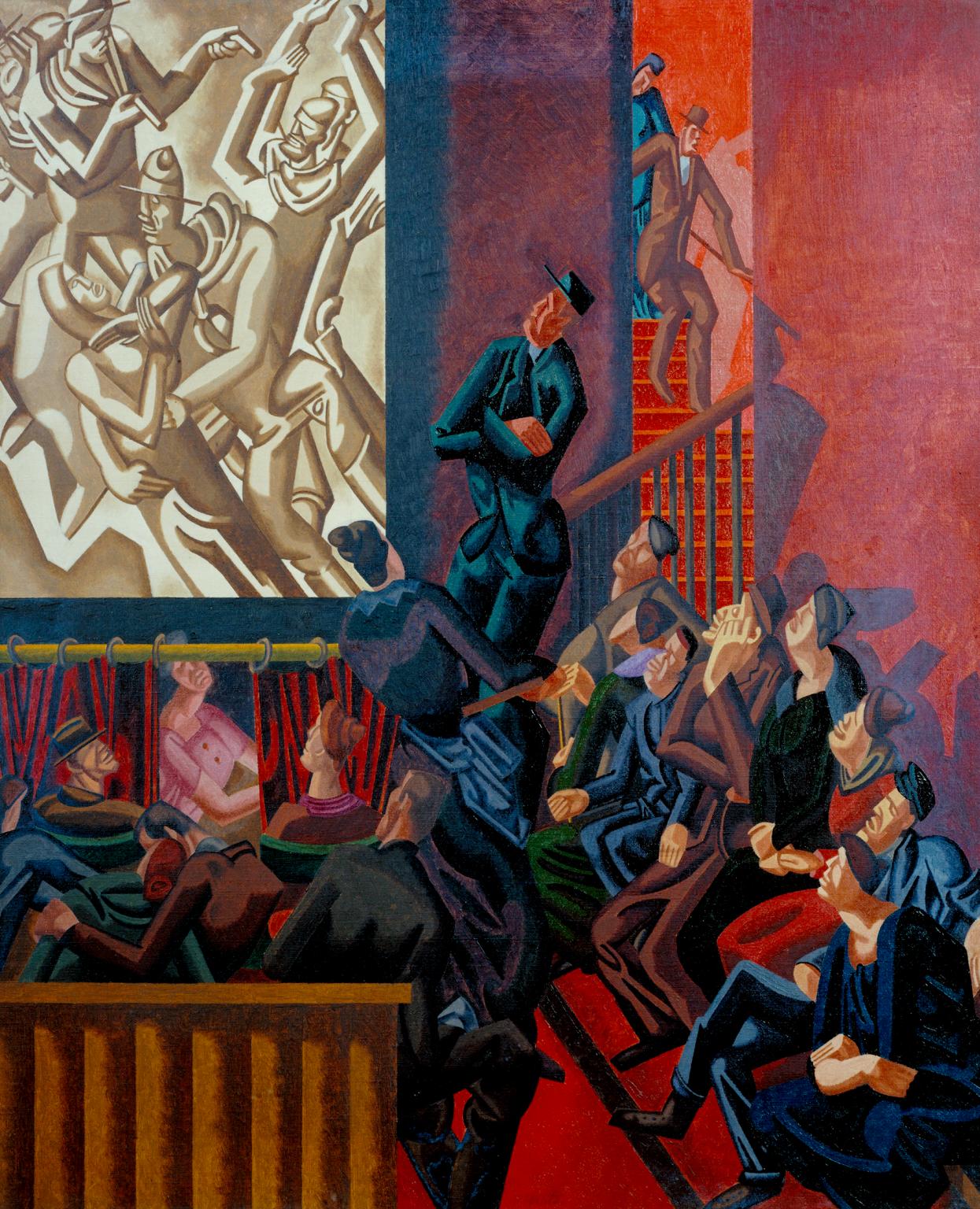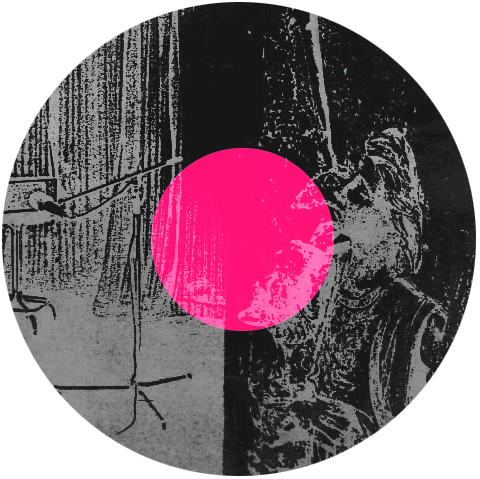Posts on: eerie

The reader became the book; and summer night
Was like the conscious being of the book.—Wallace Stevens
I hold my hands up: in last year’s roundup, readers may have noticed a glaring contradiction. Despite declaring from the outset that the works listed had “nothing to do with me”, despite rallying against “individual ego-fictions” and exalting “impersonal threads of connection”, in many of the sections I ended up talking about, well, myself. I told anecdotes, confessed feelings, gave opinions; all the telltale signs of the subjective. How was this possible? How could I so squarely contradict myself?
Now I put my hands down, in defence: I do not think this was a contradiction. In fact, no: there was a contradiction, but it was precisely the contradiction that defines books’ existence as such. For as much as they are undeniably objects with a particular form and content, the fact remains that much of the joy we get from reading books is that what we discover in them is ourselves, from a new vantage point. Works written decades ago genuinely seem to capture “our” unique essence, and allow it to be socially expressed. As such, books can neither be reduced to mere subjective feeling nor a fixed objective form, but rather must be thought as a mediation between the two: they allow the subjective to be expressed objectively, and the objective to be brought home to the subject. As Adorno stresses throughout Aesthetic Theory, art is simultaneously an object that is merely made like any other, as well as more than a made object; and it is this contradictory state that drives art’s self-development.
If I fell into “subjective” mode when discussing books last year, then, ironically it was because I was simply trying to be faithful to them as objects. I have been keen to maintain this dialectic in this year’s roundup; I have, however structured it slightly differently. Whereas last year I generally grouped texts according to genre, canon or tradition (for example “Psychoanalysis” or “Music and Post-Punk”) this year I have largely organised the works I have read this year through a set number of concepts1. This is to bypass a problem that can occur when grouping by canon or tradition, which is the deadening of particular works and their relegation to a familiar “home”. When too cosily seated in the canon, works ossify under an established set of signifiers. Works in this situation can only be approached from the outside: one must brush aside all the thick brambles of tradition, commentary and secondary literature before one can approach the work in-itself. My method here, however, has been to approach the books I read this year from within, starting from my experience reading them and developing concepts based on this. The benefits of this method are manifold: not only does one more faithfully communicate the “spirit” of particular works, but one also frees them from their established homes and puts them in dialogue with other texts. One thus sees works not as fixed points in a hierarchy of tradition, but as an intersecting mesh of lateral connections; one sees the works as alive.
We should therefore be very sceptical of the word “about”: the works listed here are not “about” these particular concepts, nor is what I have written “about” said works. Writing “about” things is generally very tedious. Instead, I have attempted this year to open myself up to the “inner life” of what I have read, and sought to only develop concepts and theories that remain immediately in contact with this pre-conceptual interior zone. The goal is a kind of radical immanence: the reaching of a level where it is not that I am writing “about” works, but rather that what I write is the works, which then are the concept. On this level, concepts harmonise with the work’s “inner life”; indeed, they allow it to blossom, to properly externalise itself. A process of blossoming: this is what the concept is, or should be.
There are certain thinkers, usually comfy academic philosophers, that scorn this approach to theory and criticism, an approach which Mark Fisher practiced most acutely. They class it as too “subjective”, too contrarian, too distant from any established canon to have any relevance. Let these thinkers have their undead labels which they tragically mistake for reality. They are oblivious to what they are missing: the brute, unnameable fact of life.
-
Editorial notes: the below is a round-up of the many things I read and watched this year, including a mixture of books, poetry collections, short stories, essays, blog posts, newsletter entries, documentaries and films. A handful of things have been left out, some because I was largely uninspired by the work, others because, despite their quality, I could not honestly categorise. ↩
Messy, speculative dispatches from an alien encounter…
On a visit up to Scotland two weeks ago to see Nick, we, utterly accidentally, came across alien territory: territory all the more alien for being so absolutely earthly.



Vast Martian expanses of rusty red rock; the half-destroyed 14th century Tantallon Castle on the horizon; a small harbour filled with grubby, viscous sea foam; an eerily neat pile of slimy seaweed tentacles; a brooding, apocalyptic sky… It was all utterly unhomely, utterly untimely: simultaneously before and after the end of the world, in and out of time, on and off this planet.
We were lost for words, revelling in this place’s unanswerable secrets. This place was literally, not at all metaphorically, psychedelic.
Retroactively, we discovered this place was called Seacliff – but all accounts of it seem to domesticate it or make it cosy, effacing its eerie cosmic energy. It’s all compartmentalised and explained away: all tales of war games, private beaches and the wealthy families who own them, tourists and dogwalkers, the local crab fisherman who uses the harbour.
Nice try, but the rocks speak for themselves. Seacliff is far more weird, trippy and unsettling than any of these authorities could ever admit. The question remains though: why?
*
Maybe it’s all just sublimity. The sublime, as theorised by many philosophers including Kant and Burke, refers to a kind of objective, absolute magnitude that is of such a quantity that it overwhelms all our faculties of comprehension. Think of, say, the Grand Canyon, or the view of Earth from the Moon, or the waves continually crashing against overhanging cliffs: this is the sublime – a grand magnitude that leaves our mouths agape, lost for words (for such crude human inventions cannot possibly do it justice). As this demonstrates, the sublime lies beyond such sense-faculties – it is supersensible, a surplus or leftover that cannot be captured, explained, and operationalised.
The feeling of the sublime, however, doesn’t totally capture the affect evoked at Seacliff. Sublimity seems to suggest a kind of separation between the exorbitant, excessive sublime object and the limited subject-interior that is submitted to, and has to adapt to, it. But the feeling at Seacliff wasn’t exactly about some grand exterior object that we could merely gawk up at – instead, it was about a vast exteriority that was revealed to have been “in” us from the beginning. This was the unsettling – and psychedelic – thing about Seacliff and its cooled volcanic landscapes: rupturing through the surface-level tension of our everyday experiences, it seemed to expose some traumatic, repressed core that had been underlying them this whole time, without us noticing. The most internal became the most external…
Read More »

Halfway through Samuel Beckett’s excellent Malone Dies, the titular character details a highly evocative visual metaphor that quickly gets right to the heart of the Beckettian project:
… I feel it my duty to say that it is never light in this place, never really light. The light is there, outside, the air sparkles, the granite wall across the way glitters with all its mica, the light is against my window, but it does not come through. So that here all bathes, I will not say in shadow, nor even in half-shadow, but in a kind of leaden light that makes no shadow, so that it is hard to say from what direction it comes, for it seems to come from all directions at once, and with equal force. (p.58)
You can picture it in your mind’s eye: a dull light that illuminates basically nothing apart from indiscriminate amorphous pools of dark colour that we can barely perceive, that for all intents and purposes is not “light” at all. And yet, this is not simply darkness either… there is something that we sense, but without any of the clarity that light is supposed to bring…
It is not just Malone’s room that is bathed in this eerie “leaden light”, which he evokes multiple times throughout the book: it is seemingly the entirety of Beckett’s oeuvre. Beckett’s characters are often decrepit, impotent, forgetful and elderly figures that stalk not just at the fringes of society (for example in mental institutions) but also at the fringes of the human itself. Constantly reflecting on and editing the texts which they are purportedly the author, flitting from one topic to the next, his characters seem to lack any of the regularity or constancy that define human interiority. And yet, they stubbornly remain human: with a dark and bleak sense of humour, they continue to think, walk about, and even have sex. Much like the leaden light, we can grasp at “something” with Beckett’s characters, but paradoxically because of this, they remain unclear, dark, “nothing”.
It is precisely this commitment to the eerie, contradictory fringes that makes Beckett’s books often challenging and difficult to read: absent a plot or characters in any substantial or coherent sense, the major footholds a reader typically depends on when reading are gone. For most people, this amounts to a cardinal sin, and an immediate turn-off: why read a book where nothing happens? Where we know essentially nothing about the characters involved? Why are there pages, indeed a whole physical book, when really there should be none? Indeed, for most people these are entirely legitimate questions, and the “common sense”, instinctual reaction to Beckett’s works would be to stop reading after 20 pages and tell everyone you know how boring the book was. But such criticisms, rather than seriously invalidating Beckett’s works, actually demonstrate the radicality of the philosophical claims they make on us. For in order to seriously engage with and enjoy them, Beckett’s works demand nothing less than this: that we adopt a whole new ontology, an ontology right at the limits of ontology itself.
The central philosophical question prompted by Beckett is this: how do we think nothingness without turning it into a “something”? How do we think a being that, paradoxically, is nothing? What kind of “being” is the leaden light?
Read More »